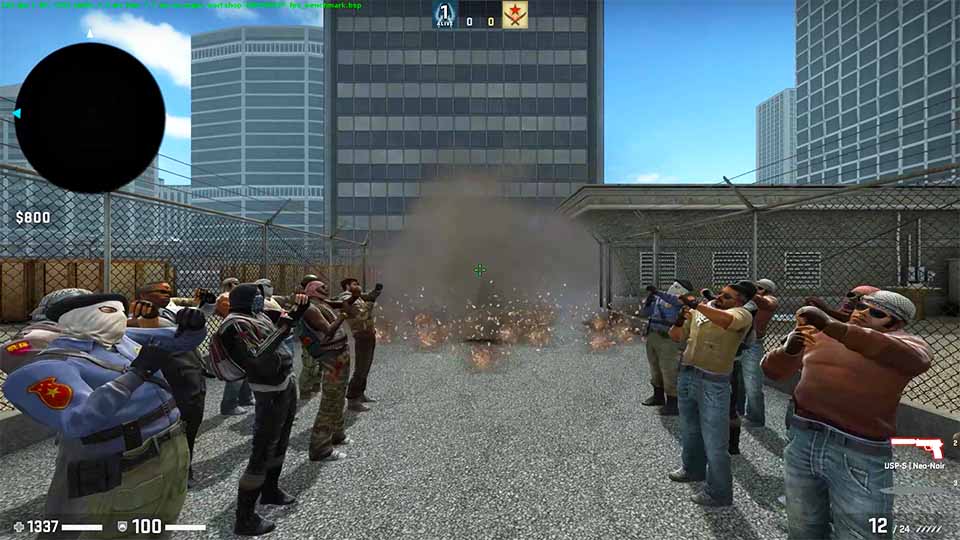Why the CS:GO Ranking system is so confusing
Do you also think the CS:GO ranking system is hard to understand?
The ranking system is designed to match players with similar skill levels, ensuring a balanced and enjoyable gaming experience for everyone. However, there is not much transparency which makes it hard to know when and why you are ranking up or down. This can be frustrating as you would like to know if the next game is potentially going to change your rank.
Knowing how the ranking system works lets you to better understand the skill level of your teammates and opponents, making it easier to adjust your strategies and tactics.
Let’s dive deeper into CS:GO ranking system and see how it works.
What is the CS:GO Ranking System and How does it work?
Players can achieve 18 different ranks, or Skill Groups, in CS:GO. These ranks range from Silver I, the lowest rank, to Global Elite, the highest rank. Typically, the majority of players are clustered in the middle ranks, with fewer players occupying the high and low ends of the spectrum.

Factors Influencing the Ranking System
The exact algorithm behind the ranking system remains a close secret. However, some factors are known to influence your rank, including:
- Win/Loss ratio
The outcome of your matches is one of the most significant factors. Winning matches will generally help you rank up while losing matches will likely lead to ranking down. Sometimes a match tie can change your rank as well. - MVPs and personal performance
Individual performance, as measured by the number of MVP awards you receive and your overall kill/death ratio, can also impact your rank. - Round results
The number of rounds you win or lose during a match can affect your ranking, even if you don’t win the game itself. - Enemy ranks
The ranks of your opponents play a role in determining how many points you gain or lose. Beating higher ranks results in more points, while losing to lower ranks may cause a significant loss of points.
Differences Between Faceit and Matchmaking Ranking System
Faceit is a third-party platform with its own ELO-based ranking system, while CS:GO matchmaking uses a skill group system. While both systems share similarities, there are some key differences:
Tick rate
Faceit servers run on a 128-tick rate, resulting in more accurate gameplay and a smoother experience, whereas matchmaking servers run on a 64-tick rate.
Anti-cheat
Faceit has a more robust and advanced anti-cheat system than CS:GO Matchmaking, resulting in fewer game cheaters.
Player base
Faceit attracts more competitive and experienced players, while CS:GO Matchmaking has a broader range of players with varying skill levels.
Map selection
On Faceit, the team captains can ban and pick maps during the pre-match process, while in CS:GO Matchmaking, players can pre-select maps they are willing to play.
Prize pools and leagues
Faceit offers various leagues, tournaments, and prizes for players, whereas CS:GO Matchmaking doesn’t have such features.

How to Get Your First Rank
To receive your first rank in CS:GO, you must win 10 competitive matches. These matches help the system evaluate your skill level and determine the most appropriate starting rank for you. Keep in mind that during this period, you might face opponents of varying skill levels, as the game tries to measure your abilities.
10 Tips to Help You Rank Up
To rank up, you’ll need to focus on improving your gameplay and working effectively with your team.
- Communication and teamwork
Effectively communicate with your teammates, share vital information, and coordinate strategies to secure victories. - Learn maps and strategies
Become proficient in several maps, and their callouts, and develop an understanding of common strategies to gain an advantage over your opponents. - Improve individual skills
Focus on refining your aim, movement, and game sense by practicing on aim training maps and watching demos - Play with a consistent group
Teaming up with a regular group of people helps build stronger teamwork and better coordination when attacking or defending bomb sites. - Analyze and learn from your gameplay
Review your own demos to identify areas of improvement and learn from your mistakes. - Watch and learn from professional players
Watch professional matches, YouTube videos, and streams to pick up new ways of playing, and learn smarter strategies and tricks to use in your own match. - Manage your economy wisely
Learn when to buy, save, or force buy, and understand the importance of managing your team’s economy throughout the match. - Stay positive and maintain a good attitude
Having a positive attitude can improve your team’s morale and increase the likelihood of winning matches you otherwise would have given up on. - Warm-up before playing
Spend some time warming up your aim and movement. Use aim training maps or deathmatch servers, before jumping into a competitive game. - Stay consistent and persistent
Keep playing regularly and remain dedicated to improving your skills. Progress may be slow at times, but consistency and determination will help you rank up in the long run.
Common Pitfalls and How to Avoid Them
To avoid common mistakes and ensure steady progress, keep this in mind.
CS:GO is a team-based game, and while individual skill is essential, it shouldn’t overshadow the importance of working together with your teammates to secure the win.
One of the major pitfalls to avoid is ignoring the importance of communication and teamwork. Communication is key to success, so make sure to share information with your team, and always be willing to adapt your play style to support your teammates. A team that communicates effectively and collaborates is more likely to come out on top. By focusing on both your personal performance and your contributions to the team as a whole, you’ll maximise your chances of ranking up.





